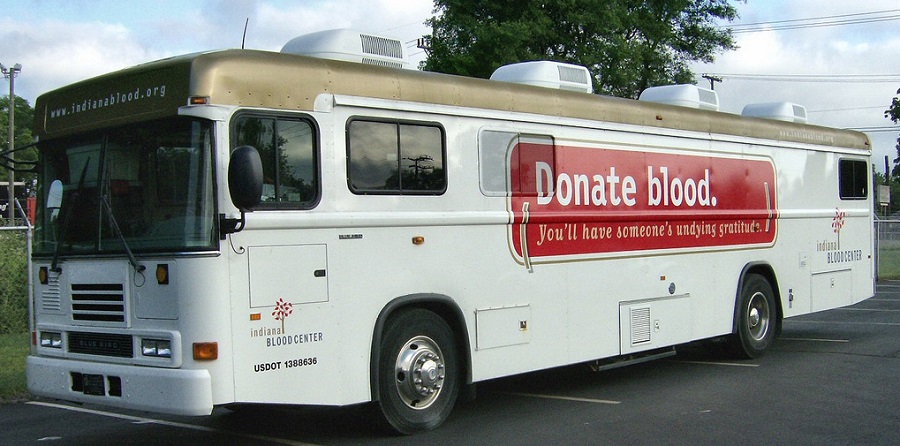Have you ever dreamed of traveling the world while earning a living? If you’re a phlebotomist, that dream can become a reality with traveling phlebotomist jobs. This unique profession allows you to explore various locations while providing essential healthcare services. In this comprehensive guide, we’ll dive deep into what it means to be a traveling phlebotomist, including job responsibilities, travel tips, destination highlights, and much more!
What is a Traveling Phlebotomist?
A traveling phlebotomist is a healthcare professional who specializes in drawing blood for various tests and procedures, usually in different locations. These positions often involve temporary assignments at hospitals, clinics, or blood banks in need of extra support. As a traveling phlebotomist, you can experience the thrill of working in new environments while enhancing your career in the medical field.
Job Responsibilities of a Traveling Phlebotomist
The job responsibilities of a traveling phlebotomist are similar to those of a traditional phlebotomist. However, the dynamic nature of travel adds exciting layers to the role. Here are the major responsibilities:
- Draw blood from patients for tests, transfusions, donations, or research.
- Prepare samples for laboratory analysis.
- Maintain accurate records and documentation on patient interactions.
- Adhere to safety protocols and regulations to ensure patient confidentiality and safety.
- Provide compassionate patient care and alleviate anxiety related to blood draws.
- Collaborate with other healthcare professionals to ensure optimal patient care.
How to Become a Traveling Phlebotomist
Becoming a traveling phlebotomist requires both formal education and practical experience. Here’s how to get started:
1. Obtain the Necessary Education
Most positions require a high school diploma or equivalent, followed by a phlebotomy certification. Various community colleges and vocational schools offer programs that can be completed in a few months.
2. Gain Experience
Before considering travel positions, you should gain some hands-on experience. Many employers prefer at least a year of experience working as a phlebotomist before hiring you for a traveling position.

3. Get Certified
While certification is not always mandatory, it is highly recommended. Organizations like the American Society for Clinical Pathology (ASCP) and the National Phlebotomy Association (NPA) offer certification programs.
4. Apply for Traveling Positions
Once you’ve gained the necessary experience and certifications, you can apply for traveling phlebotomist jobs through staffing agencies or healthcare companies that specialize in temporary assignments.

Pros and Cons of Traveling Phlebotomist Jobs
Pros
- Adventure: Discover new locations and cultures as you travel.
- Flexibility: Choose assignments that fit your preferences.
- Higher Pay: Traveling positions often come with a salary boost and bonuses.
- Networking Opportunities: Meet different professionals and gain diverse experiences.
Cons
- Uncertainty: Temporary contracts can lead to gaps in employment.
- Adjusting to New Environments: Each assignment may come with unfamiliar workflows.
- Travel Fatigue: Constant travel can be exhausting and may impact personal life.
- Distance from Home: Being away from family and friends for long periods can be challenging.

Traveling as a Phlebotomist: Tips for Success
1. Stay Organized
Keep track of your assignments, travel plans, and certifications. Use apps or planners to stay on top of important dates.
2. Embrace New Cultures
Take time to explore your new surroundings. Try local foods, visit attractions, and engage with the community.
3. Build a Support Network
Connect with fellow traveling professionals online or through social media. They can provide valuable insights and support.
4. Prioritize Self-Care
Traveling can be demanding; make sure to prioritize your physical and mental health while on the road.

Top Destinations for Traveling Phlebotomists
1. California
With friendly hospitals and beautiful landscapes, California is a popular choice for traveling phlebotomists. Explore vibrant cities like San Francisco and Los Angeles during your off-hours.
2. Texas
Texas offers a diverse range of assignments, from urban hospitals to rural clinics. You can enjoy world-renowned BBQ and music scenes when you’re not working!
3. New York
Working in healthcare in New York City can be an exhilarating experience. With a fast-paced environment, you’ll meet thrilling challenges! Plus, the city’s culture is unmatched.
4. Florida
Home to endless beaches and beautiful weather, Florida is ideal for those who want to combine work with a beach getaway. The demand for healthcare professionals here is consistently high.
Comparison Table: Top Staffing Agencies for Traveling Phlebotomists
| Agency Name | Benefits | Pay Rate | Contract Length | Reviews |
|---|---|---|---|---|
| AMN Healthcare | Comprehensive benefits, travel reimbursements | Average: $25/hour | 13 weeks | 4.5/5 |
| Cross Country Healthcare | Flexible assignments, fully furnished housing | Average: $26/hour | 8 weeks | 4.2/5 |
| Jackson Nurse Professionals | High pay, supportive staff | Average: $27/hour | 13 weeks | 4.6/5 |
| All Medical Personnel | Mileage reimbursement, bonuses | Average: $24/hour | 12 weeks | 4.3/5 |
FAQs About Traveling Phlebotomist Jobs
What qualifications do I need to become a traveling phlebotomist?
You typically need a high school diploma, completion of a phlebotomy certification program, and some experience in the field.
How much do traveling phlebotomists make?
The salary for traveling phlebotomists can vary widely based on location, experience, and the staffing agency, but averages range from $24 to $27 per hour.
Are traveling phlebotomist positions in high demand?
Yes, there is a consistent demand for phlebotomists, especially in areas with high patient influx and for temporary positions.
What is the typical contract length for traveling phlebotomists?
Contracts typically range from 8 to 13 weeks, depending on the facility’s needs and your availability.
Do traveling phlebotomists get housing assistance?
Many staffing agencies offer housing stipends or assistance finding temporary housing options.